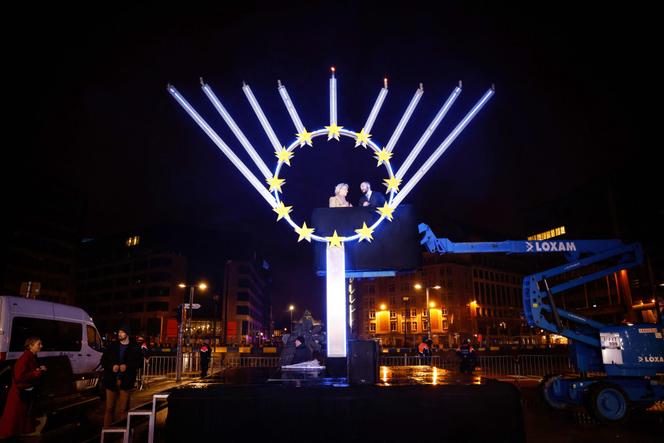


While the 27 European Union heads of state and government agreed to launch negotiations for the accession of Ukraine, Moldova and Bosnia-Herzegovina on Thursday, December 14, they were still divided on a vote to demand a ceasefire in the Israeli-Hamas conflict. Leaders discussed the subject on the second day of the European Council meeting on Friday. However, no announcement was made on this sensitive issue, given the ongoing disagreement.
While Israeli operations against Hamas continue, causing thousands of Palestinian casualties, Europeans still refuse to collectively call for an end to the bombings. "[European] foreign policy decisions are made unanimity, made by consensus," Irish Prime Minister Leo Varadkar noted before the debate. "We now have a clear majority of countries here in the European Union calling for a ceasefire. I think that's the view of the people of Europe as well."
A senior European official commented, "We didn't have another six-hour debate in Brussels, as we did on October 26 and 27 at the previous European Council, since the Europeans were unable to follow the United Nations this week in New York on a resolution calling for a ceasefire."
Varadkar pointed out that countries' stances have changed since October. At the end of October, European leaders took hours to agree on a joint text asking Israel for "pauses," but not a ceasefire. On Tuesday, December 12, in a UN vote in New York, 17 European countries supported a resolution calling for a halt to the fighting, seven member states abstained, including Germany and Italy, and two opposed it (Austria and the Czech Republic). By comparison, on October 27, when the UN voted on a previous resolution, only eight were calling for this ceasefire, including France, and four opposed it, the other countries abstaining.
"We're all moving in the same direction. I'm pleased that the choice France made to call for a ceasefire is increasingly being followed by our partners," commented Emmanuel Macron. While European Council President Charles Michel expressed a need to strengthen our efforts towards convergence, Macron responded "We mustn't make this an objective in itself. What matters most to me is that we, as Europeans, have a very concrete coordinated response to security issues (...), humanitarian issues, and joint work on a two-state political solution."
European Commission President Ursula von der Leyen has announced an acceleration of humanitarian aid. The EU has already released over a hundred million euros and plans to increase the amount of humanitarian aid by 25% between 2023 and 2024. While Europe remains the leading donor, it is keen to have more political impact, after lagging behind the United States. As a European diplomat noted, "We are credible on a two-state solution, because we have been calling for this solution consistently for over 50 years."
You have 40% of this article left to read. The rest is for subscribers only.
